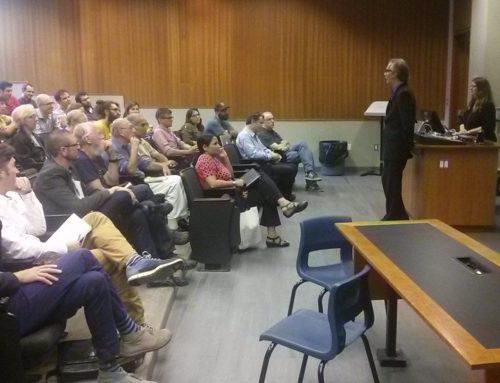Nicolas Fillion (Simon Fraser University)
Title: The Vindication of Computer Simulations
The relatively recent increase in prominence of computer simulations in scientific inquiry has transformed both science and philosophy of science. In fact, a practical knowledge (a ‘know-how’) of scientific computation has become essential for scientists working in all disciplines involving mathematics. This situation has given rise to a fair amount of literature bearing on the epistemology of computer simulations. Despite their incontestable success, it must be emphasized that the numerical meth- ods subtending simulations provide at best approximate solutions and that they can also return very misleading results. Accordingly, epistemological sobriety demands that we clarify the circumstances under which simulations can be relied upon. More specifi- cally, our presentation will characterize the type of justification that must be sought for computer simulations and the circumstances in which such a justification can be given. It is becoming increasingly popular to distinguish to modes of justification of sim- ulations, namely, verification and validation. Following this terminology, verification is the assessment of the accuracy of the solution to a computational model and validation is the assessment of the accuracy of a computational simulation by comparison with ex- perimental data. The relationship of computer simulations is only at issue in validation. Now, most of the literature on the epistemology of simulations has been about validation; our presentation focuses on verification. If the process of verification does not involve a justification that can be articulated in terms of correspondence with the world, what then is the type of justification involved? We maintain that the type of justification required is a vindication, in the sense in which Reichenbach claimed to have given a vindication of induction. We will not debate the vices and virtues of his claim about induction, but we will elaborate on his work (and that of Feigl) towards a distinction between justification as vindication and justification as validation. Then, adopting the perspective that is common among numerical analysts, we will articulate a view according to which computer simulations are best understood as inferential recipes and that, as a result, the type of justification they require is a vindication. Finally, we develop an important consequence of treating the justification of computer simulations. As Reichenbach has emphasized, a vindication is a fundamentally pragmatic affair. Thus, the justification of computer simulations would also be a fundamentally pragmatic affair. We push this point further than Reichenbach. In fact, by ‘pragmatic’ he meant that the sort of justification involved was goal-directed, i.e., assessing an inferential practice as a means to an end. However, in addition to this pragmatic consideration, we use the conceptual apparatus of a method of error analysis known as “backward error analysis” to show that the vindication of computer simulations is fundamentally context- dependent. This sensitivity to the modelling context reveals that, despite not being directly established by correspondence to the world, vindication nevertheless depends on factual considerations.






